Volkswagen Turned a Defunct Stadium Into a Junkyard and Pontiac Isn't Pleased
After a lengthy death rattle spanning from 2006 to 2012, Michigan’s Pontiac Silverdome finally closed for good in 2013. Its parking lot, however, remains in use thanks to Volkswagen’s legal obligation to buy back scores of diesel cars following its infamous emissions scandal. In stasis since January, the cars have become an unwelcome addition to the deteriorating stadium and the city of Pontiac has opted to sue the property’s current owners for holding them.
While the site’s parking lot is being used for its intended purpose for the first time in years, city officials claim that Triple Investment Group has violated numerous safety codes, zoning ordinances, and a municipal code relating to the proper storage of used vehicles at the property. Six complaints were filed with the 50th District Court in Pontiac on February 27th, roughly a month after hundreds of VWs arrived in the wake of the company’s emission’s crisis.
Now, the doomed diesels number in the thousands.
Is This the Boring New Volkswagen T-Roc?
There’s a Terminator-like CGI image floating around that purports to show the upcoming Volkswagen T-Roc compact crossover. If it is VW’s new sub-Tiguan utility vehicle, and you’ve already seen the flashy T-Roc concept, prepare to be underwhelmed.
As we reported earlier this week, the T-Roc — which might adopt a new moniker in the U.S. — was reportedly green-lit for the American market after dealers gave it their seal of approval. VW needs utility vehicles, and a youthful, sporty little ride that encourages owners to drop their tops seems like just the ticket to stimulate interest in the brand. However, it seems the targa-top, pillarless two-door will lose all of those unique features before appearing on dealer lots.
If this image is indeed the T-Roc, well, those reports didn’t lie.
Volkswagen's Car Sex Commercial is Unsettling in an Unusual Way
Volkswagen USA released an advertisement on YouTube today entitled “Luv Bug,” and it uses the ever-popular growing family angle to appeal to the customer.
Click through to watch this interesting take on in-car entertainment, and see if you spot what’s wrong.
Funky Volkswagen T-Roc is U.S. Bound: Report
Desperate for more utility vehicles in the U.S. market, Volkswagen has reportedly green-lit a sporty crossover concept that has made the auto show rounds since 2014.
The T-Roc, which shares the same MQB platform as the Golf, debuted as a two-door compact crossover with a targa-like removable roof and pillarless side glass. Just don’t expect the T-Roc to drop its top when it appears in the U.S. in 2019. Oh, and the two-door thing? Don’t expect that, either.
Family Feud: Ferdinand Piech Looking to Offload Stake in VW's Ownership
One of the preeminent figures within the European automotive industry is looking to get out of the family business. The former paterfamilias of Volkswagen AG, Ferdinand Piech, is looking to dump his stake of Porsche Automobil Holding SE and sever his remaining ties to VW. Piech’s shares would remain within the Porsche-Piech family — allowing them to keep control of Volkswagen Group — but Ferdinand would be out of the game as a majority stakeholder.
Piech has been at odds with his relatives after suggesting that Wolfgang Porsche and several other VW supervisory board members had been aware of Volkswagen’s emissions cheating much earlier than they claimed. Sources close to the family, whose members are apparently outraged, have stated that the Porsche-Piech gang sought to replace him at the table of Porsche Holdings ever since.
In an Odd Twist, German Authorities Raid Volkswagen's Internal Investigator
At some point, a scandal grows so big that investigations begin to overlap. When the scope widens even more, investigators suddenly begin investigating each other.
That’s the current situation in the Fatherland, where American law firm Jones Day recently had its offices raided at the request of German authorities in hot pursuit of executive skulduggery. Jones Day, of course, is the internal investigator hired by VW to probe the shady dealings that led to the diesel emissions scandal.
What started with unusual emissions readings at a West Virginia university now feels a lot like The Departed.
Apparently, Mller Wasn't As Interested In FCA Partnership As We Thought
To say that there was some speculation surrounding Volkswagen CEO Matthias Müller’s response to a potential partnership with Fiat Chrysler Automotive would be a severe understatement.
Müller said there had been no contact between he and FCA CEO Sergio Marchionne, but he’d not ruled anything out. He seemed to have an indifference about the subject, which left plenty of room to let minds wander.
According to Automotive News’ Larry P. Vellequette, that’s not the whole story.
A Detroit Jail Will Remain Home Sweet Home for Nabbed VW Exec
Suspecting that a Volkswagen executive might fly the coop if released on bond while awaiting trial, a U.S. District Court judge slammed the cell door shut until early next year.
Oliver Schmidt, who was arrested early this year during a stopover in Miami, is currently cooling his heels in a Detroit jail after being slapped with conspiracy and fraud charges relating to the diesel emissions scandal. With a potential jail sentence of 169 years looming over his head, even $1.6 million ponied up by family and friends wasn’t enough to secure his release.
German Audi and VW Offices Raided in Ongoing Diesel Emissions Investigation
As Volkswagen Group’s emission scandal settles down in the United States, things in Europe remain unresolved. German police raided the headquarters of Volkswagen and Audi as part of the never-ending investigations into the company’s diesel cheating.
The German blitz was carefully orchestrated as investigators simultaneously hit Audi’s headquarters in Ingolstadt, the corporate offices at its Neckarsulm plant, and VW’s headquarters in Wolfsburg. Separate spokesmen from VW and Audi confirmed the raids, both adding they’re cooperating with authorities.
Mller: 'Size Does Not Matter,' VW Not Counting Out FCA Friendship
Matthias Müller, CEO of Volkswagen Group, said in a press conference he hasn’t excluded the possibility of a merger with Fiat Chrysler Automotive.
Müller said, “There has been no contact at this point between (CEO of FCA) Mr. Marchionne and me, but I have never said I would exclude it.”
Elevate to Escalate: Volkswagen Golf Alltrack Is Crushing Golf SportWagen
It’s no Subaru Outback, soaring toward the top of sales charts with all the force of an automaker riding a decade-long wave of rapid U.S. growth. But the Volkswagen Golf Alltrack, launched in the United States last autumn, is steadily earning a place as the most important Volkswagen wagon. By far.
In fact, the Golf Alltrack is quickly becoming the bright spot in Volkswagen of America’s Golf lineup and the Volkswagen brand’s overall hierarchy. Not surprisingly, the Alltrack is also dimming the spotlight previously shone upon the Golf SportWagen.
Tiguan Klassisch? Old Model to Stay as Volkswagen Scrambles to Flesh Out SUV Offerings
You’ll have a choice of Tiguans after the newly enlarged 2018 model goes on sale. As it desperately seeks ways of diversifying its utility vehicle lineup in the U.S., Volkswagen will have the old compact crossover soldier alongside its updated, three-row successor.
The company has listed SUVs as the central pillar of its new American product strategy, but coming up with new models isn’t easy for a car-centric company that’s low on cash. Satisfying the public’s seemingly insatiable demand for mobile cargo space requires a solid plan, and VW thinks it has one.
Volkswagen's Electric Hippie Van is Close to Being Approved, But There's a Catch
If your life goals for the near future include recreating the Summer of Love, there’s some far-out news arriving from Volkswagen. Public reaction to the automaker’s electric I.D. Buzz concept proved positive enough to give executives confidence in European and American demand for the reborn Microbus.
Unfortunately for latter-day hippies and retirement-age flower children, their enthusiasm for this out-of-sight green machine won’t be enough for VW to start production. It seems that the model’s future hinges not on the Counter Culture Revolution, but the Cultural Revolution.
Volkswagen Pleads Guilty to Criminal Charges, Will Pay $4.3 Billion Fine
The Volkswagen diesel emissions saga has reached a logical legal conclusion. The automaker entered a guilty plea in a Detroit federal courtroom this morning, admitting to a vast, 10-year conspiracy to fool environmental regulators through the use of emissions-cheating defeat devices.
As penance, Volkswagen AG must now pay $4.3 billion in criminal fines and civil penalties. That sum can now be added to the multi-billion U.S. buyback of hundreds of thousands of 2.0- and 3.0-liter diesel vehicles manufactured since 2009. While the penalties would be a bitter pill for any automaker to swallow, it’s a fraction of the fine allowed under federal guidelines.
Had the court pursued it, it might have sparked a brand fire sale down at Volkswagen Group.
Orange Crushed: Farenheit Edition GTI Gets 'Ented' as Windstorm Sweeps Midwest
If you live in the Upper Midwest or in southern Ontario, this won’t come as news to you: one of the worst windstorms in the region’s history swept through on Wednesday. Wind gusts of up to 68 miles per hour were recorded in the Detroit area. In southeastern Michigan alone, over 800,000 households and businesses were without electrical power after winds tore down trees and utility lines.
Fortunately for Lincoln Russell, who lives in Detroit’s Westbridge neighborhood, he was in Montreal when the storm blew through town. Unfortunately for Mr. Russell, he also left his dearly beloved 2007 Fahrenheit Edition Volkswagen GTI parked on the street back home. Shortly after noon, the high winds apparently encouraged a large tree with a trunk about three feet in diameter to make like one of Tolkein’s Ents and try to cross the street. Unlike Middle Earth’s traveling topiary, Detroit’s trees are not supernatural and this one came tumbling down, crushing Russell’s GTI and nearly knocking down a utility pole in the process.
Volkswagen's Driverless Creation is Everything That Scares People About Autonomous Cars
Unable to get excited about the vehicle pictured above? Maybe that’s because this Volkswagen concept embodies everything people who don’t want to read about self-driving cars hate.
See, it has a name — Sedric. Which is apparently a combination of three words — “self,” “driving,” and, you guessed it, “car.” It’s just so appallingly cute. Which, like the existential threat to personal freedom that surrounds the technology, is another thing that turns off gearheads when vehicles resembling shapeless computer mouses or refrigerators crop up.
While VW’s concept, which is more of a pod than a car, is meant to herald the company’s autonomous future and serve as the patriarch of the company’s anticipated self-driving offerings, it’s really just a testbed for VW engineers to tinker with. Designed for Level 5 (or “full”) autonomy, Sedric is just the beginning, VW claims. To many, that might sound like a threat.
Phaeton's Realistic Son: 2018 Volkswagen Arteon Wants Your Premium Dollars
Let’s face it, the Volkswagen CC was just a tarted-up Passat and the ultra-lux Phaeton was a colossal dud that bit the dust in the same manner in which it lived: without anyone noticing.
With scads of room to fill at the top of its lineup, VW has decided that the CC should make way for a true premium sedan, one with a swoopy Germanic roofline and up-to-date architecture. (And ideally saddled with a hard-to-remember name). With the 2018 Arteon, unveiled today ahead of the Geneva Motor Show, the automaker finally has what it needs. But is it what premium sedan buyers want?
2017 Volkswagen Passat V6 Review - Lower Saxony's Tennessee Sedan Volunteers For Family Sedan Duty
Time flies. 2017 is the sixth model year for the Chattanooga, Tennessee-built Volkswagen Passat, the Americanized family sedan that aimed for the heart of the market so routinely missed by its forerunners.
The other Passat, the Passat designed more for Europe’s tastes than yours, has since launched in new, eighth-generation form. Yet having lost all of the momentum created by Tennessee’s Passat in 2012, Volkswagen of America forges on with one particularly American cue: displacement.
An optional V6 engine is not entirely outside the midsize norm. In fact, the three best-selling midsize cars in America all currently offer a V6 powerplant. But it has become increasingly normal for competitors to skip the V6 in favor of turbocharged 2.0-liter four-cylinder powerplants. That’s how Chevrolet, Hyundai, Kia, and (until recently) Ford play the game.
The 2017 Volkswagen Passat’s V6 is a 3.6-liter unit with 280 enthusiastic horsepower. All 280 ponies burble melodically at idle, as if to contradict the sober invisibility of the exterior design while heaping shame on the childish intake rasp of competitors’ four-pots.
Horsepower is undeniably intoxicating.
This new Passat, however, even with 280 intoxicating horsepower, is not a new car. And these 3,597 CCs cost a minimum of eight bucks per unit, or nearly ten bucks per CC in the case of our tester.
Unfortunately, there’s no replacement for displacement is only a valid statement if you’re willing to supplement your payment.
Volkswagen's Top Emissions Man Pleads 'Not Guilty' in Detroit Courtroom
Based in Germany and nabbed by federal agents in Florida, Volkswagen’s one-time top emissions compliance manager for the U.S. made an appearance in a federal courtroom in Detroit today.
Indicted, along with five others, on charges of conspiring to defraud the U.S. and violating the Clean Air Act, Oliver Schmidt isn’t about to face down hard time without a fight. The executive pleaded not guilty to the charges, reports The Detroit News.
Volkswagen's Arteon Looks Exactly Like We Predicted
Volkswagen’s CC replacement, the Arteon, will make its debut at the 87th Geneva International Motor Show and it looks exactly like we predicted — right down to the color, no less.
Based on VW’s recent teaser shots, the new four-door fastback looks almost identical to the Sport Coupe Concept GTE. However, as fun as it is to gloat, most of the automotive community expected this. Germany’s biggest automaker isn’t exactly known for its flamboyant redesigns and bold styling choices. There are a few remaining unsolved mysteries surrounding the car, however.
Germany Demands Investigation Into Odd Exit of Volkswagen's Compliance Chief
Politicians from Volkswagen’s home region of Lower Saxony are raising questions over the unanticipated departure of the German automaker’s compliance chief, Christine Hohmann-Dennhardt, saying they have concerns over how the supervisory board handled the matter. There has been a long-standing apprehension among investors and business analysts that VW is too tightly controlled by its founding Porsche-Piech family and incapable of amelioration.
On Wednesday, Deutsche lawmakers called for a formal inquiry on the matter.
Hohmann-Dennhardt was brought aboard very late in 2015 to assist in Volkswagen’s reformation following the diesel emissions cheating scandal. However last month, after only a year on the job, she left abruptly with a sizable pension and gargantuan severance.
No (Four) Pot of Gold: Some Volkswagen Diesel Owners Are Stuck Between Borders
U.S. owners of illegally polluting Volkswagen diesels have already flown to sunny vacation spots or picked up a new vehicle with the help of buyback and compensation checks. North of the border, over 100,000 Canadians who own a 2009-2016 TDI model are waiting for their cut of a $2.1 billion settlement.
However, Volkswagen’s “we’re sorry” gravy train isn’t rolling into everyone’s driveway. Some owners are finding that their vehicles are stuck in a cross-border limbo.
Volkswagen Fears Pricey Jettas as Thorny Mexico Trade Talk Continues
A border tax placed on Mexican goods bound for the United States would be a worst-case scenario for struggling Volkswagen.
The automaker, which already knows a few things about worst-case scenarios, is waiting on pins and needles to see if the proposed tax prices its small cars out of the market.
Volkswagen Brass Fights Back After Ex-Chairman Points Finger… at Them
Ferdinand Piëch, former chairman of Volkswagen and grandson of Beetle creator Ferdinand Porsche, is in hot water with his former company.
The ex-chairman resigned in April 2015 — five months before the diesel emissions scandal broke — after the company’s steering committee put his future to a vote. Piëch lost after his rival, then-CEO Martin Winterkorn, saw VW management rally to his side.
A suspiciously hostile divide existed between both men at the time, and recent comments by Piëch may explain why the two doomed executives became such bitter enemies. To say that VW’s supervisory board isn’t happy with his comments would be an understatement.
Fishmonger, Tiny Country Deliver Bad News to Volkswagen
Minus an ongoing criminal probe that has some executives, including the company’s former CEO, sweating bullets, Volkswagen has seen relatively little blowback from the emissions scandal in its home country.
Its emissions-rigged diesel vehicles continue to ply the roadways of the Continent, with nothing like the multi-billion-dollar American buyback scheme in sight. It’s not smooth sailing, however, as some burned customers have decided to come for their own pounds of flesh. This week, a company that knows all about flesh showed up in search of payback.
Volkswagen Stops Its Quest for Tiny Engines With Big Pollution Footprints
Contrary to the popular mantra, there is a replacement for displacement. The problem is tiny engines that harness technology to boost power output aren’t the greenest things on the road. In fact, the emissions created by small two, three and four-cylinder engines are often out of all proportion to the mills’ Lilliputian displacement.
Volkswagen, realizing it’s staring down the barrel of regulatory non-compliance, has vowed to stop searching for the latest gas- and diesel-powered micro-wonder. Small is out. Normal-sized is in.
Volkswagen Wrestles a Revered Model From the Icy Grip of Stigma
Sometimes, a brand, person, or thing is forever tainted by an unfortunate occurrence.
Think of Anthony Perkins and the movie Psycho. Because a character can be played a little too well, the roles really didn’t pour in after that. The same goes for Ted Kennedy and a certain incident involving an Olds 88.
In the automotive world, few people bothered picking up a second-generation Chevrolet Corvair, despite the elimination of the previous generation’s wildly controversial — an potentially deadly — swing-axle rear suspension.
Stigma skews people’s perception, and Volkswagen, frankly, has had enough of it. So, in an effort to keep the name of its most fuel-efficient production vehicle clean, VW has dropped a certain fuel from a model that once knew nothing else.
Owner Payouts Revealed as Volkswagen, Bosch Settle 3.0-liter Diesel Claims for $1.55 Billion
Owners of certain Volkswagen, Audi and Porsche vehicles caught up in the diesel emissions scandal will receive hefty payouts, even if their vehicles aren’t bought back by the manufacturer.
Volkswagen and supplier Robert Bosch GmbH have agreed to a settlement worth a combined $1.55 billion, Reuters reports. The agreement covers about 80,000 vehicles outfitted with emissions-cheating 3.0-liter diesel V6 engines — 20,000 of which will return to the automaker for good.
While parting with a beloved luxury vehicle can be difficult, cold hard cash has a way of softening the emotional blow.
Volkswagen's Ex-compliance Chief Will Receive a Minimum $12 Million Severance, Plus Pension
Christine Hohmann-Dennhardt, Volkswagen’s outgoing compliance chief, will receive at least $12 million for her time with the company — with the possibility for as much as $16.1 million (15 million euros). Hohmann-Dennhardt, who was brought on to get VW through its messy emissions crisis, was canned by the automaker last week. The company attributed the “amicable” split to a “disagreement in the understanding of responsibilities and future operating structures within the function she leads.”
New reports indicate that a central aspect of those disagreements involved Volkswagen’s upper management attempting to stop Hohmann-Dennhardt from exposing any additional information on how the emissions scandal transpired.
The Dream of 2009 is Alive in 2017: Volkswagen Named Sales Winner, by a Hair
It’s a good news kind of day in Wolfsburg, despite fears of further indictments from U.S. authorities and an ongoing investigation by pesky German investigators.
After spending years jockeying with rival Toyota for the sales crown, Volkswagen finally pulled ahead in 2016 to become the world’s top automaker, fulfilling a goal set in 2009. The architect of that global dominance strategy — ex-CEO Martin Winterkorn — might not share the elation of his former colleagues, as he is currently under investigation for fraud.
How I Ended Up in the Arms of a Base-Model Volkswagen Jetta
I’d spent about a year building up to this moment: my first new car purchase since 2005. A lot happened between then and now, including a messy divorce that took two years to finalize, and which left a giant, smoking, Ground Zero-style smoking hole where my finances (and credit) had been.
But I needed a second car so my 20-year-old daughter could use my old Buick LeSabre to get back and forth to college and her student teaching gig. So, I rebuilt my credit, Six Million Dollar Man style. I did my homework on financing. I drove Lord knows how many cars over a one-year period. And I decided on one that I thought was vastly superior: a Volkswagen Golf. I even negotiated a decent price.
Still, the numbers weren’t working.
“You have to be kidding. That works out to how much?”
Volkswagen Criminal Probe Expands to Ex-CEO Winterkorn
German prosecutors say their investigation into Volkswagen’s dirty dealings now includes the company’s former CEO, Martin Winterkorn.
The long-running probe into the diesel emissions scandal recently expanded from 21 suspects to 37, Reuters reports, placing Winterkorn solidly under the microscope. Winterkorn stepped down just days after the scandal went public in September 2015.
The former top boss recently emerged from the shadows to tell a German committee he knew nothing of the decade-long conspiracy under his watch, though prosecutors suspect he may have known more than that.
Volkswagen's Other Karmann Ghia: the Type 34
The Karmann Ghia is familiar to most automotive enthusiasts as a styling exercise intended to turn the Volkswagen Beetle into a slinky “sportscar” using pedestrian internals. The resulting Type 1 Ghia debuted way back in 1955 and added some (more) Porsche styling to the family sedan. Assembled by Karmann in Osnabrück, Germany, with styling from Carrozzeria Ghia in Turin, Italy, the curvy two-door offered little performance, but much style, compared to its stablemates.
However, the Type 1 Karmann Ghia wasn’t the only car to bear that German-Italian nameplate.
Volkswagen's Compliance Chief Splits Because Compliance Means Different Things To Different People, Apparently
Christine Hohmann-Dennhardt, Volkswagen Group AG’s compliance chief, is leaving the company after disputes with VW’s senior management regarding her responsibilities. Those duties primarily revolve around ensuring the automaker adheres to regulatory requirements — something Volkswagen has had a difficult time with as of late.
After only a year with the company, Volkswagen confirmed Hohmann-Dennhardt will be leaving at the end of this month. According to an official statement, her exodus is “due to differences in their understanding of responsibilities and future operating structures within the function she leads.”
Considering her role on the supervisory board consisted wholly of seeing Volkswagen through the devastating emissions crisis while improving its image and ensuring it did not commit anymore egregious unlawful acts, you have to wonder what those differences in understanding entailed.
VW's Wireless Heated Windshield Uses Invisible Silver to Foil Frost
Unless you live in a tropical climate year round, you’ve likely been forced to become a cold and pathetic vessel of sadness as you de-ice your windshield at 7:30 a.m. before spending the rest of your day filing TPS reports at a job you hate. Unfortunately, maxing out the defroster takes too long, and self-heating windscreens rely on always-visible filaments that range from slightly distracting to more bewildering than a BeDazzled pair of ’90s jorts, depending on how the light hits the wires.
Ford’s Quickclear — an option unavailable in the United States — is one of the better examples of heated glass. However, a passing car with strong headlights can illuminate the entire wire network, involuntarily influencing a person’s eyes to refocus numerous distances within a second or two.
Volkswagen’s new solution to the problem is to use a “wafer-thin electrically conductive layer of silver within the laminated glass” in lieu of traditional wires — and that means it’s invisible, ushering in a new golden era of automotive ownership for car owners often fraught with the burden of frost.
As the Volkswagen Beetle Nervously Awaits a Pink Slip, There's an Effort Afoot to Save It
Rumors of the Volkswagen Beetle’s demise are either greatly exaggerated, or right on point. The Model languishes on the low end of the sales scale, hamstrung by a retro design that shuns updates and the public’s dwindling enthusiasm for compact cars.
Still, there exists fans of the model, even inside the scandal-shaken and SUV-fixated company. No one loves the Beetle more than VW design head Klaus Bischoff, who claims the model is his favorite in all Volkswagendom (um, have you seen the Atlas, Klaus?). So great is his love for the Beetle that Bischoff is urging VW to spare the model the axe and stimulate interest through a new method of propulsion.
A report suggests that top brass might be listening.
Ex-Volkswagen CEO Reappears, Claims He Didn't Know Nuthin'
As far as anyone knows, former Volkswagen CEO Martin Winterkorn spent the last 16 months on a desert island.
After resigning his post in the turbulent days after the diesel emissions scandal went public, Winterkorn stayed out of the spotlight, shying from any public appearances. That is, until now. As indictments land in executives’ laps and top brass grow wary of leaving the country, Winterkorn showed his face to a parliamentary committee in Berlin.
Reborn Volkswagen Microbus Headed to Production: Report
If we’re to believe a source inside Volkswagen, 2022 could bring a latter-day Summer of Love.
The company’s latest Microbus concept — the eye-rollingly named I.D. Buzz — might not stay a concept for long, an insider claims, stirring hope in eco-conscious Germanophiles and fans of the original hippie wagon.
Finally, an Automotive Scandal is Compared to Horse Meat Lasagna
Three German judges claim that Volkswagen’s actions leading up to the diesel emissions scandal was akin to putting horse meat in lasagna.
Bloomberg reports that the comparison was made when a court in Hildesheim ordered the car manufacturer to buy back someone’s Skoda Yeti at full sticker price. The ruling was warranted, as VW intentionally committed fraud, the court said.
Volkswagen's Last Kick at the Microbus Can: Maybe Call It a Crossover?
It seems that even Volkswagen executives realize you can’t keep showing off different variants of the same concept before the public grows weary of the tease.
At the North American International Auto Show this week, visitors to Detroit feasted their eyes on the eleventy billionth latter-day VW Microbus concept, this time called the I.D. Buzz. Okay, maybe that number is a bit high, but the folks from Wolfsburg have kept up a steady trickle of retro Microbus concepts for 16 years. This time, it’s fully electric. No wheezy four-cylinder (or raucous five) in sight.
Naturally, the automaker hopes this latest concept’s name doesn’t prove a lie, but this latest offering — and the atmosphere around it — feels different. The mood implies it’s now or never for the concept — not just this one-off vehicle, but the concept of a reborn Microbus altogether.
Volkswagen Exec Could Get 169 Years; Top Managers Warned Not to Go on Vacation
After a Volkswagen official was collared in Miami while on vacation, other top company officials have been warned to stay close to home.
Oliver Schmidt, who allegedly lied to environmental regulators to cover up VW’s emissions cheating, was arrested by FBI agents Saturday while returning home from a Cuban holiday. According to Reuters, Schmidt, one of six former or current VW managers indicted on multiple charges this week, could face up to 169 years in a U.S. prison if found guilty.
After the FBI’s lucky airport break, a new report suggests top brass in Wolfsburg are feeling penned in. Kiss that winter vacay goodbye.
Six Volkswagen Executives Indicted by Department of Justice
The United States has now laid charges against six former or current Volkswagen officials for their role in the diesel emissions scandal.
A federal grand jury in the Eastern District of Michigan returned an indictment today, fingering the execs for playing key roles in a decade-long conspiracy to deceive the U.S. government and public. While five of the men live in Germany, one man — Oliver Schmidt, former head of VW’s regulatory compliance department — was nabbed by the FBI in a Miami airport on Saturday while attempting to return to Germany.
As the charges were handed down, the embattled automaker pleaded guilty to three criminal federal counts and agreed to pay $4.3 billion in criminal and civil penalties.
Volkswagen's U.S. Emissions Man Nabbed in Florida, Slapped With Conspiracy Charges
A Volkswagen executive who allegedly spent more than a year throwing up smoke screens around the emissions-cheating automaker has been arrested in sunny Florida.
Oliver Schmidt, a former top emissions compliance manager assigned to the U.S., ran defense for the company in the long run-up to the diesel revelations. As allegations mounted and regulators began asking questions, Schmidt and other company officials blamed phony technical problems for the sky-high emissions levels seen during real-world testing.
According to the New York Times, Schmidt, a German national, was nabbed on Saturday and charged by the FBI with conspiracy to defraud the U.S.
Volkswagen Can Save 70,000 TDI Vehicles, If Their Owners Want It
Assuming owners of 2.0-liter diesel Volkswagens aren’t so pissed at the company that thoughts of cash extraction and corporate punishment fill their every waking hour, up to 70,000 of the little polluters could be spared.
After failing multiple times to whip up a fix for the emissions-rigged engines, VW has made a breakthrough with the U.S. government. That means owners of certain VW and Audi vehicles have a choice to make.
As Volkswagen Exec Heads to the Slammer, an Engineer Awaits His Fate
The first person sentenced in the sprawling Volkswagen emissions scandal is headed to jail in South Korea, but the man who helped design the defeat smog-spewing engines will have to wait for his punishment.
Reuters reports an executive of VW’s South Korean division was handed a sentence of one year, six months today for his side-role in the diesel deception. Meanwhile, a German engineer who was the first employee charged in the scandal will cool his heels a little while longer.
It seems he’s just too useful.
Prodrive - A Manufacturer of Championship-Winning Speed
The name Prodrive isn’t one you’ll stumble across every day, and sounds a bit like a company that might offer teen driving courses. However, it’s one of the world’s most successful race car shops, and bests many individual manufacturer efforts.
How successful?
How does six World Rally Championships, four Le Mans wins, five World Endurance Championships, and four British Touring Car Championships victories sound for a start?
But while “race on Sunday, sell on Monday” is the parable that motivates many marques in motorsport, Prodrive sells no road cars.
How does a small, generally unheard of firm compete against the likes of Porsche, Honda, and Ford? Simple — those companies hire Prodrive to run their race programs.
Germany Finally Gets in on the Diesel Action With Its Own Compensation Lawsuit
A lawsuit has been filed in Germany against Volkswagen in the hopes of forcing the automaker to buy back emission-cheating cars in Europe in the same manner it was ordered to in the United States.
The suit, filed today by a solitary vehicle owner, will become the test case for thousands of other European claimants and aims to put pressure on VW to compensate continental customers for the ongoing emissions scandal.
2017 Volkswagen Golf SportWagen 4Motion Review - So Many Letters, Yet Not Enough
I’ve no idea how, as I’ve lived in the same Ohio county for all of my 30-plus years (sounds better than nearly 40) on this earth, but I stumbled upon an unfamiliar rural road not far from home last week while testing the new 2017 Volkswagen Golf SportWagen. New roads are naturally meant to be explored, so I flicked the signal lever and looked for adventure.
The weather was typical for late December: brisk, with frost in spots making the fallen leaves a bit slick. My first instinct was to drive cautiously, but I realized that I never get opportunities like this. A few hours alone behind the wheel, in daylight, with nowhere to be. The 4Motion all-wheel drive should save me if things get hairy, right?
Volkswagen Isn't Willing to Buy Back Your Stripped Diesel
If you were considering stripping your Volkswagen diesel prior to returning it, hit the brakes on that project immediately. VW’s nonspecific wording in the buyback terms created a gray area of legality that a few emissions scandal-affected owners decided to test, removing unessential portions of their 2.0-liter TDI-equipped models.
However, after a particularly thorough set of peelings, a federal judge warned opportunistic owners not to strip parts out of their vehicles before attempting to sell them back to Volkswagen through the company’s emissions settlement.
Volkswagen Teases Another Latter-day Hippie Mobile, Hopes You'll Forget That Diesel Brouhaha
For a solid 15 years — longer than the combined duration of World War I, II, and Korea — Volkswagen has made a habit of teasing consumers with boxy concepts that draw inspiration from the company’s far-out Microbus of yesteryear.
It doesn’t matter whether the automaker is flying high, like it was at the turn of the century (and decade), or digging itself out of a scandal, like it is now. There’s always a piece of flower power vaporware lurking nearby, ready to trigger increasingly distant memories of a free-wheeling, free-love past.
We’ve been tentatively promised some sort of modern-day Microbus since the New Beetle still seemed somewhat new, but to no avail. Well, times are changing, and along with it, technology. But VW’s tactics aren’t.
2017 Volkswagen Golf Alltrack Review - Alltrack Is On Track But Can't Find The Next Track
If only I’d thought ahead.
If only a day earlier I had instructed the Department of Transportation to position cameras across the length and breadth of Nova Scotia and installed a few in-car GoPros, I could have sold footage from our first full day in the 2017 Volkswagen Golf Alltrack to Volkswagen for the prototypical all-wheel-drive commercial.
Bitterly cold temperatures had made the snow-clearing efforts from the Friday before a hit and miss affair. Our 150-minute drive from the Atlantic coast, in Eastern Passage, to the Fundy coast, in Cornwallis, turned into a 200-minute drive because of messy roads throughout the Annapolis Valley.
That was only the beginning. The next low began to pass through just after the noon hour, and by the time our 4 p.m. departure time rolled around, we knew we were in for a long drive home. With the confidence inspiring, brand-new Continental WinterContacts at all four driven wheels, we steeled ourselves for what would become a 270-minute drive home.
Four Cains, fast-falling snow, freakishly heavy traffic: this calls for extra ride height. Just a very little bit of extra ride height.
Volkswagen Finally Reaches an Agreement for Its Dirty 3.0-liter Diesels
After a seemingly endless legal drama, Volkswagen AG has reached an agreement with the U.S. owners of roughly 83,000 emissions-cheating VW, Porsche and Audi vehicles equipped with 3.0-liter diesel engines.
Like the earlier settlement for 2.0-liter defeat device-equipped models, this agreement includes a combination of buybacks, fixes and cash payments. Owners of 2.0-liter models have long since counted their “we’re sorry” money, but these buyers will have to wait just a bit longer before finding out what payment to expect for their premium ride.
It’s not a small sum, apparently.
Christmastime in Canada: Volkswagen Showers Diesel Owners With $2.1 Billion
Half a year after an embattled Volkswagen agreed to pay nearly $15 billion in compensation to U.S. diesel owners and regulators, it’s Canada’s turn to dip into the automaker’s sooty wallet.
The company reached a deal today with the 2.0-liter diesel vehicle owners behind a class-action lawsuit. When finalized, the settlement means up to 105,000 bought-back vehicles and more cash added to the company’s penalty pile. $2.1 billion, to be exact, assuming everyone applies for a piece of the pie.
While the cash compensation has the same floor as in the U.S., the payout’s ceiling is lower.
Volkswagen Gets the Weekend to Finalize Emissions Deal
Volkswagen Group has agreed to shell out $200 million into a reserve created to reduce diesel pollution, a stipulation in the pending agreements made over the 3.0-liter diesels that polluted well over the United State’s legal limit.
The finalized agreement between VW and U.S. lawmakers is expected to come by Monday, pending the company’s decision on what to do about the 80,000 Audi, Volkswagen, and Porsche vehicles with emissions-cheating diesel engines still on the road. Legal representatives for the carmaker, affected consumers, and the Justice Department have indicated that negotiations are still progressing, however VW may still have to go to trial if a final agreement isn’t reached soon.
Volkswagen's Tiguan Allspace to Debut in Detroit, But You'll Call It a Tiguan
Volkswagen will showcase its extended-wheelbase, seven-seat Tiguan Allspace at next month’s North American International Auto Show — hoping to use the crossover to curry favor with the United States in the wake of its diesel emissions scandal.
The 2018 Tiguan Allspace should serve as a cheaper alternative to larger three-row SUVs, similar to Nissan’s Rogue with its optional family package. It should also serve as a way to coax crossover-crazy Americans back into VW’s warm embrace.
You May Be Within Your Legal Rights to Strip Your Buyback Volkswagen Before Handing It Over
Volkswagen and Audi have begun buying back the thousands of 2.0-liter diesel cars sold involved in its emissions cheating scandal. The deal requires the company to offer buybacks to the 475,000 affected owners. However, the settlement does not carefully outline what condition those returned vehicles have to be in.
Some owners are taking that inch for the full mile and stripping their VWs down before returning them to the company to get their big fat check.
Volkswagen Design Employee Claims Atlas Styling Boring, Old, Domestic
There’s no doubt Volkswagen needs its new midsize Atlas to be a home run (or, at least, a ground rule double) to keep its American dealers appeased following the now-year-long diesel emissions scandal. Even before the scandal, Volkswagen USA could neither create a product mix befitting American sensibilities nor price its ill-marketed product at price points palatable to the American public.
Yet, Atlas — Volkswagen’s crossover slotting between the compact Tiguan and upmarket Touareg — wears sheetmetal penned by Ativan-popping designers, and one of Volkswagen’s design employees agrees.
Volkswagen Execs Hiring Defense Lawyers En Masse as U.S. Authorities Snoop in Germany
Volkswagen appears to be suiting up for an impending battle. The road has been a long and difficult, but the diesel emissions scandal seems as if it’s about to begin its third and final act.
Dozens of German Volkswagen AG officials have hired criminal defense lawyers as the United States Department of Justice elevates its investigation into the company. U.S. authorities have traveled across the Atlantic to conduct additional interviews with managers and gather further evidence on VW’s plot to elude America’s emission regulations.
Here's What California Wants Volkswagen to Do With Its Penalty Cash
The California regulator that played an important part in uncovering Volkswagen Group’s emissions cheating plot detailed a list of options on how the automaker will be required to spend the $800 million penance by advancing green tech and nonpolluting cars.
Some of the choices the California Air Resources Board came up with are truly terrible.
VW Teases Upcoming Four-door 'Coupe', But We Already Know What It Will Look Like
Volkswagen has only revealed one entirely new model since the emissions scandal began, and with CC sales tanking hard, now seems a good time to start on a second.
Planned to be revealed in full at the 2017 Geneva Motor Show, VW is teasing the public with some specs on its upcoming range-topper.




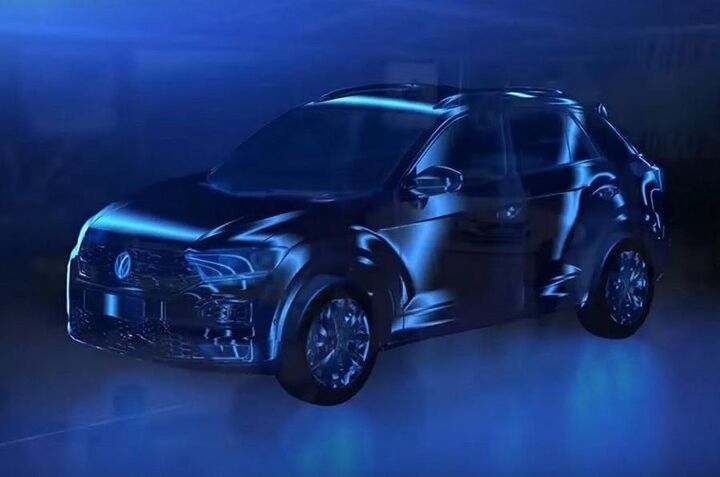
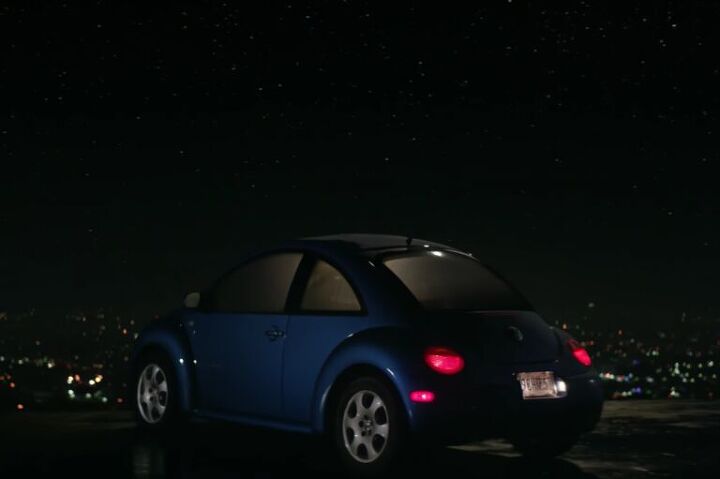
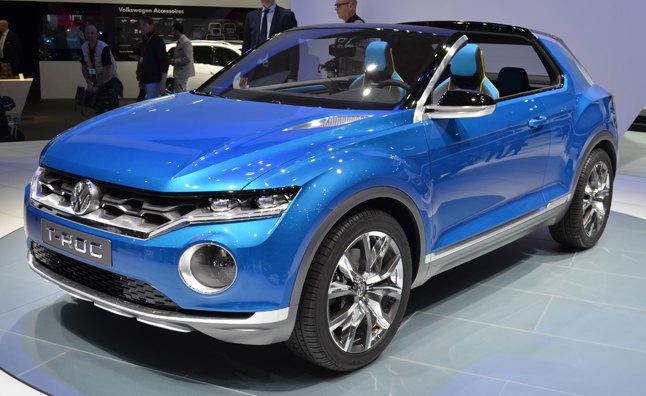
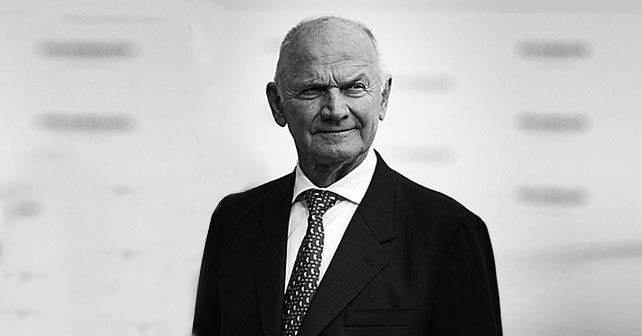





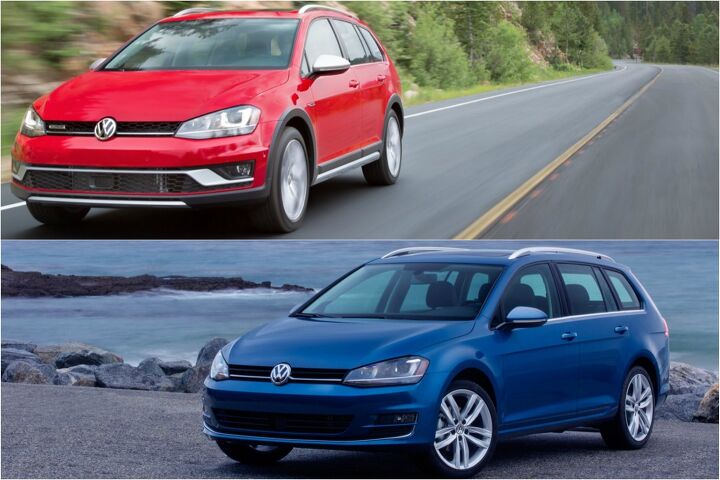

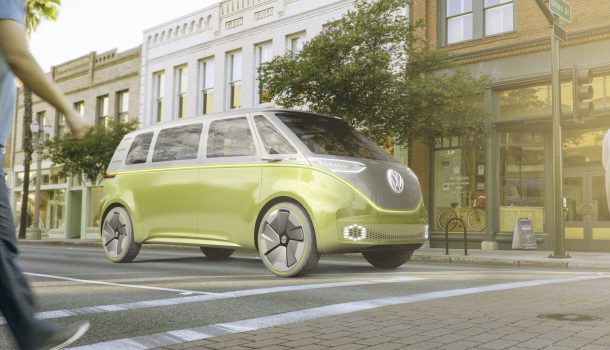


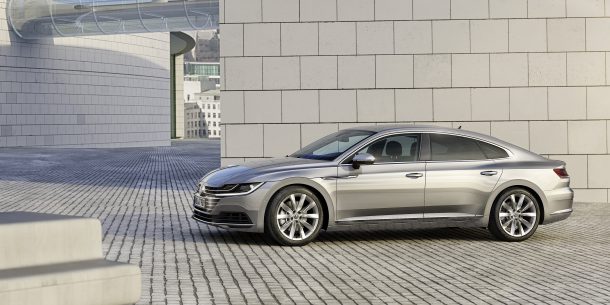


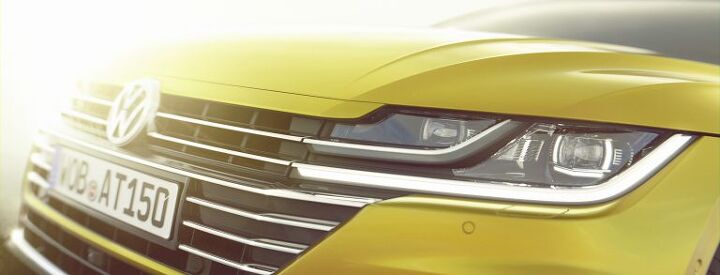

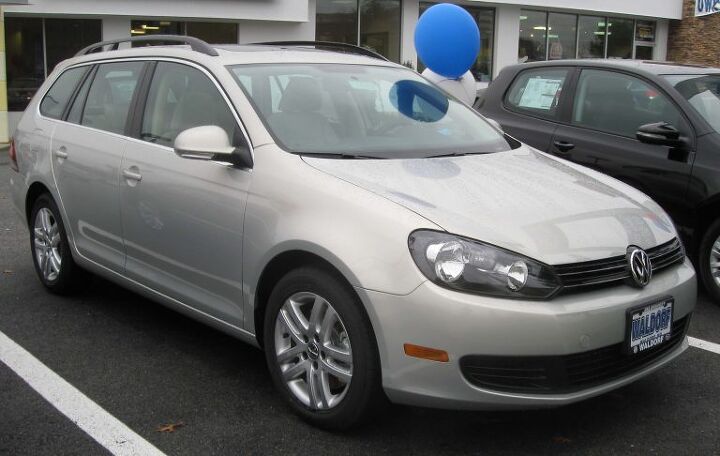
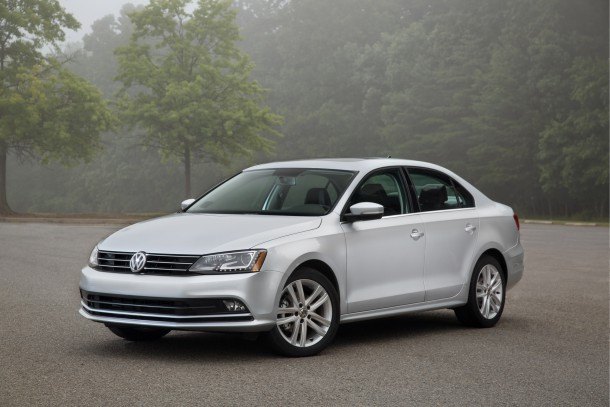


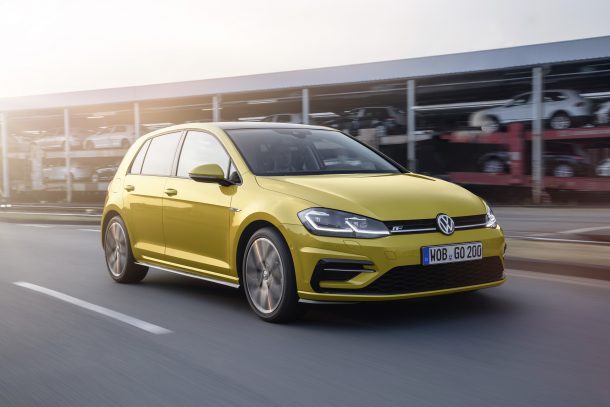
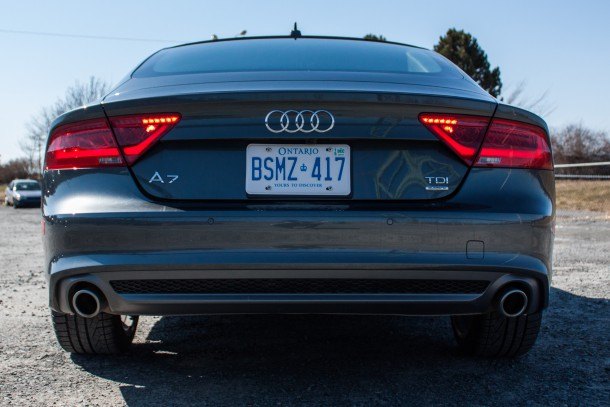


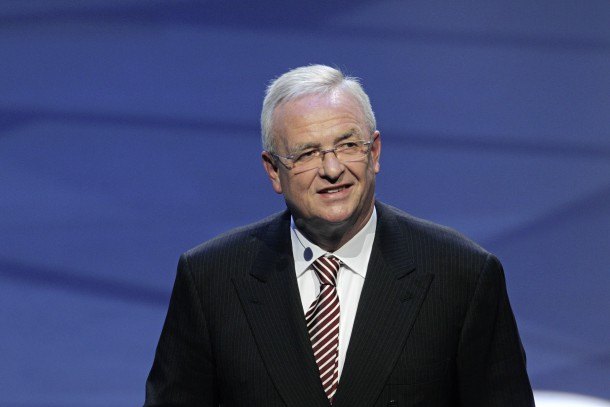
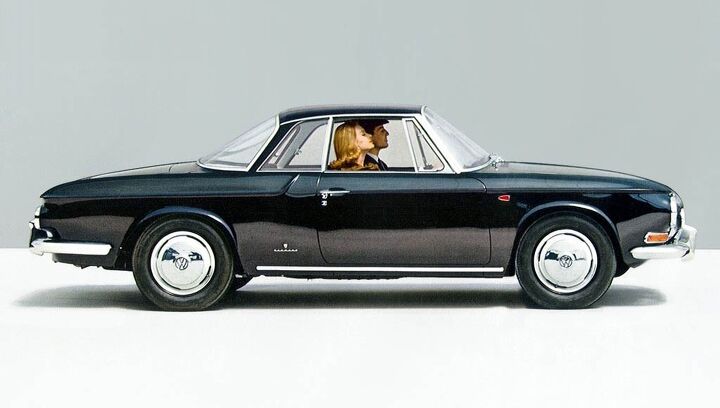
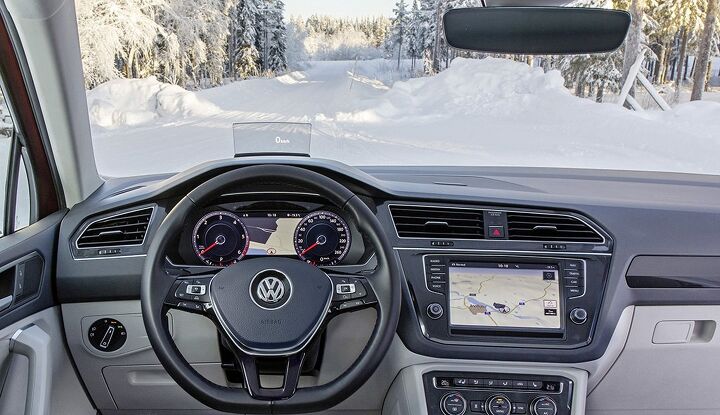
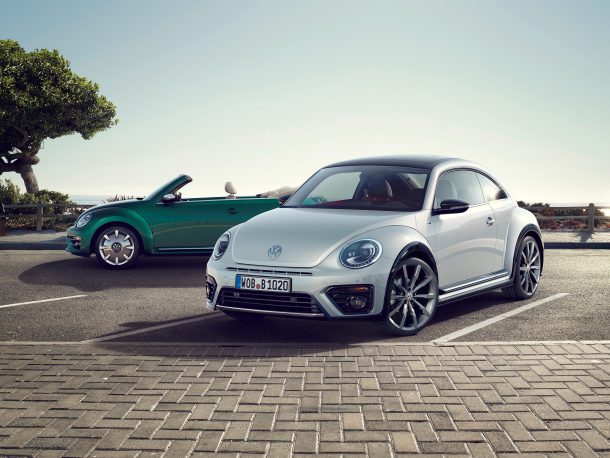







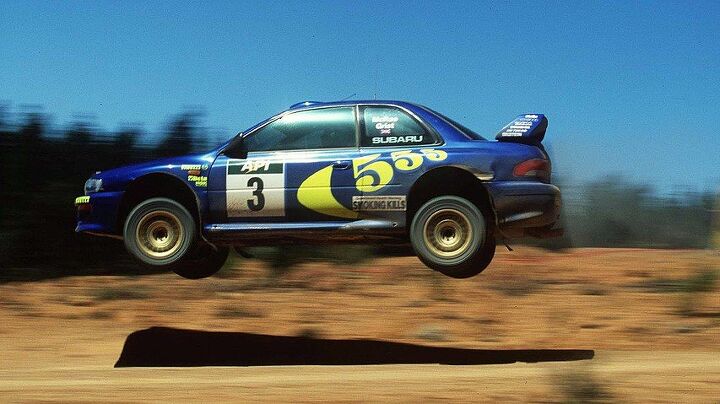

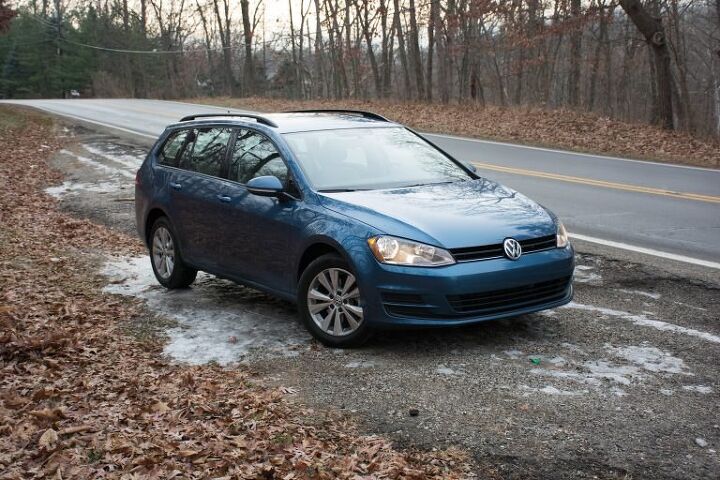

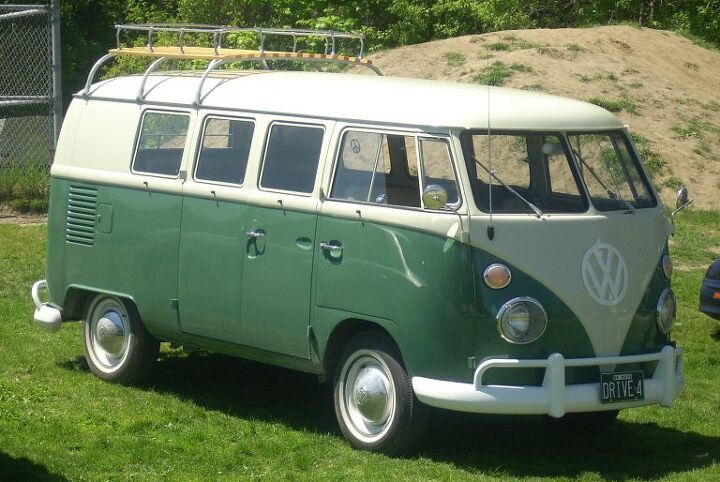
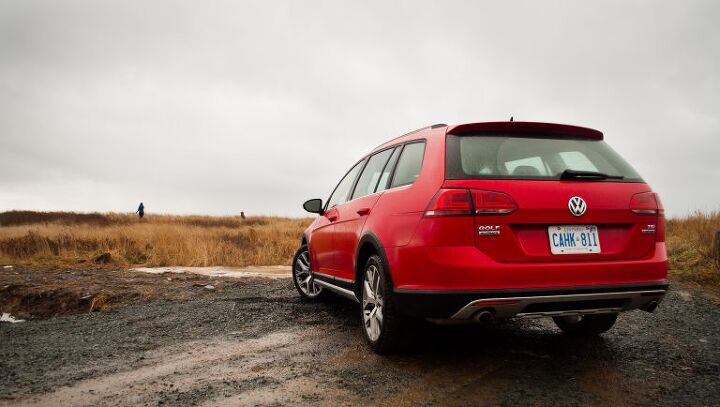

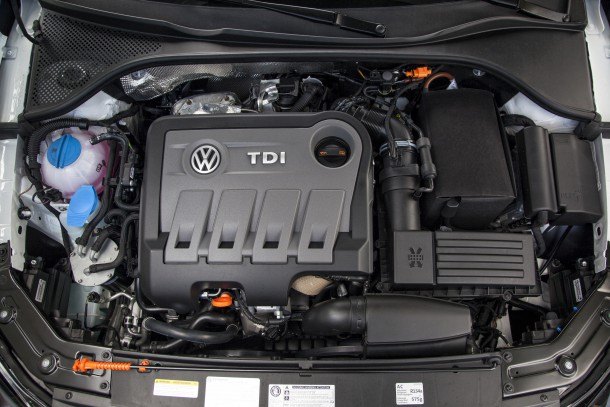
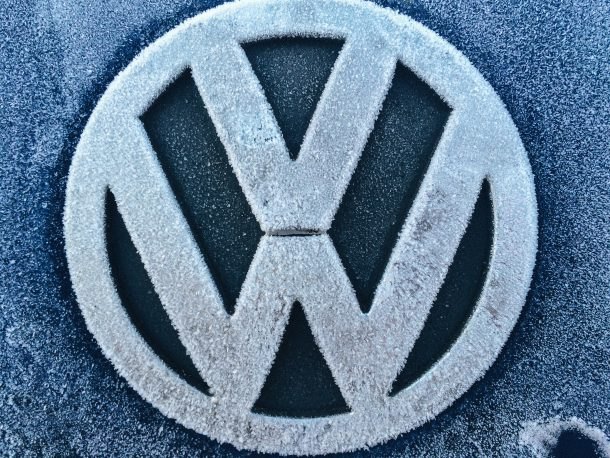

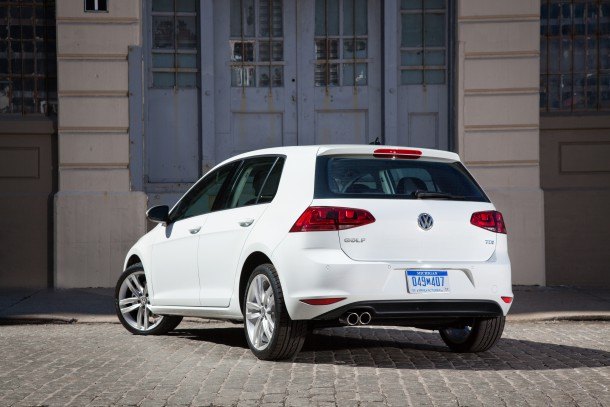
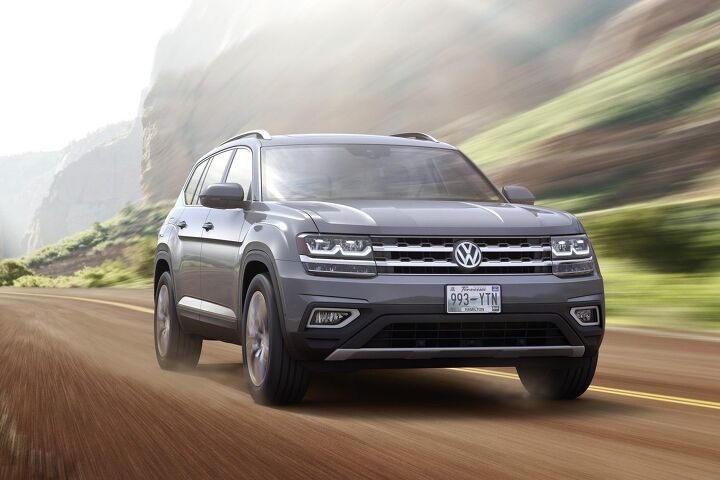













Recent Comments